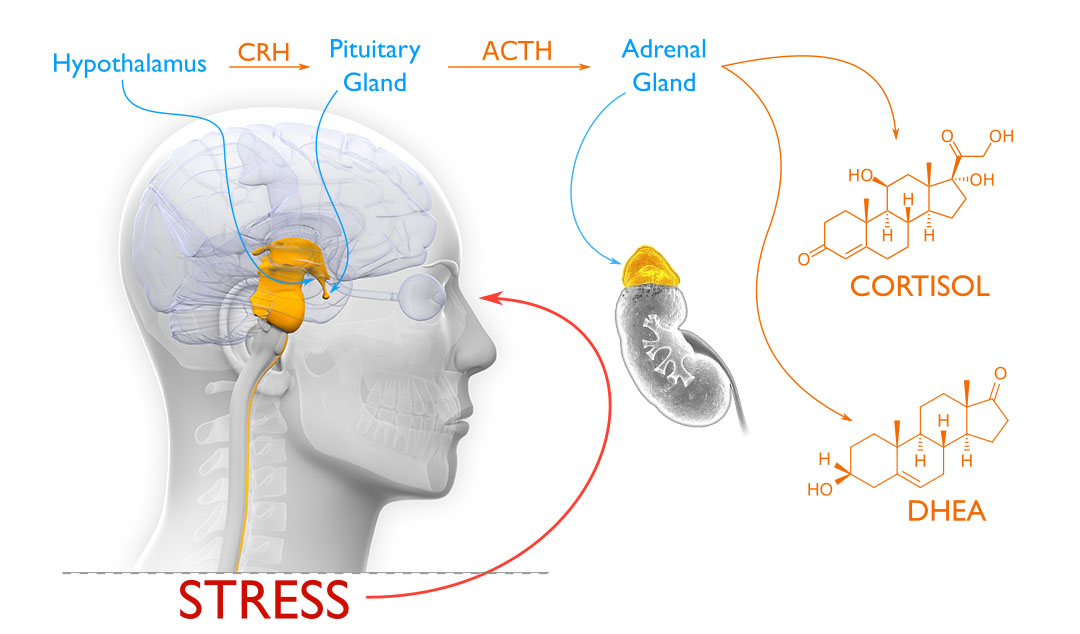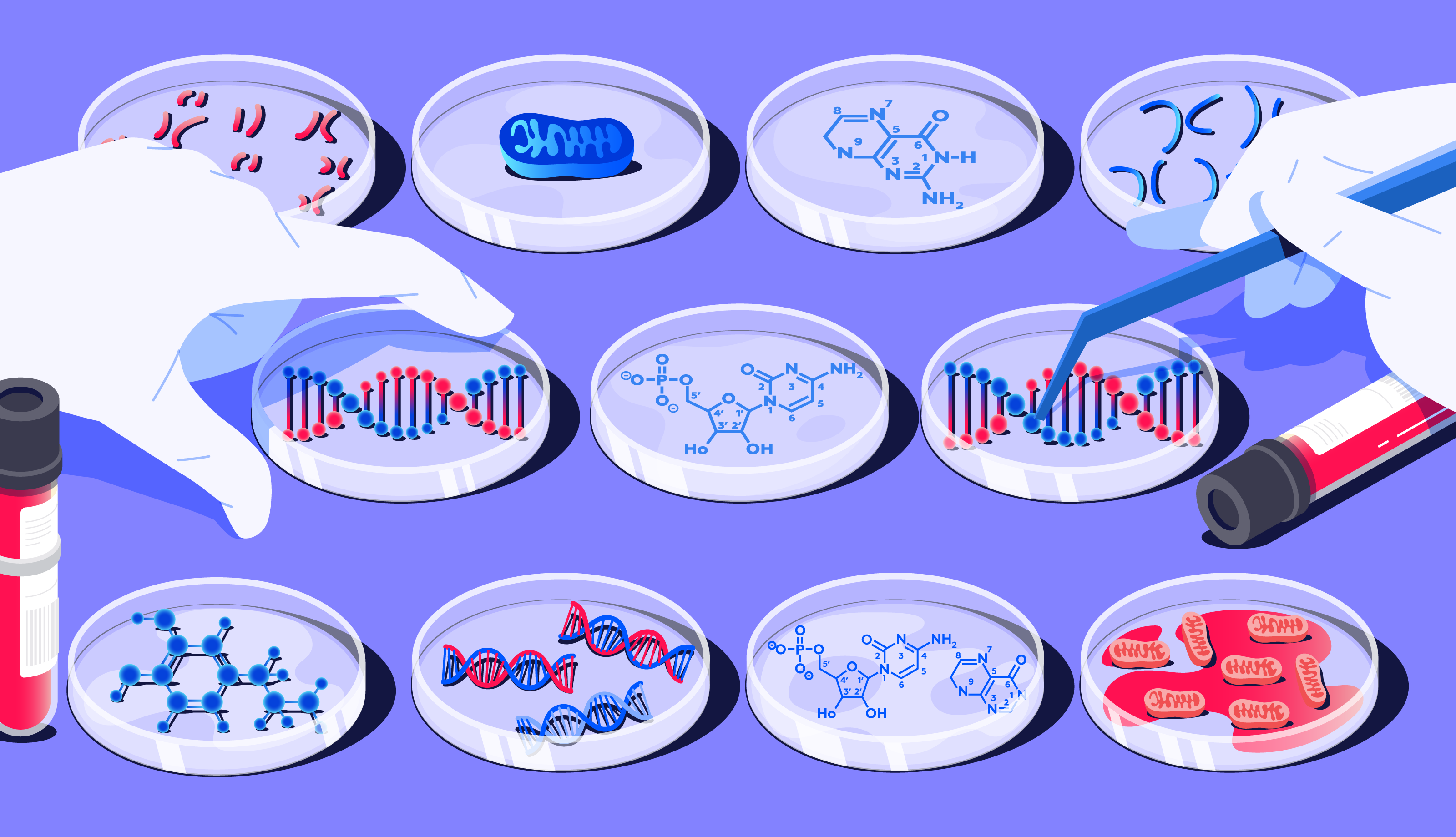DHEA Sulfate Test
DHEA Sulfate Test, The level of dehydroepiandrosterone sulfate in your blood is determined by the DHEA-sulfate (DHEA-S) serum test. The adrenal glands, which sit above your kidneys, create the hormone DHEA-S. It is a precursor to the sex hormones (estrogens and testosterones) produced by men and women.
What’s the role of the adrenal glands?
The endocrine system depends heavily on the adrenal glands, which provide hormones necessary for some bodily processes. The adrenal cortex and adrenal medulla, each in charge of a separate hormone, are the two main components of these organs situated on top of each kidney.
The Adrenal Cortex
Corticosteroids: These include mineralocorticoids (like aldosterone), which regulate blood pressure by controlling the balance of sodium and potassium in the blood, and glucocorticoids (like cortisol), which affect metabolism, immunological response, and stress.
Androgens are male sex hormones that affect libido and the development of secondary sexual traits in both sexes.
Adrenal Medulla:
Catecholamines: These include noradrenaline (norepinephrine) and adrenaline (epinephrine), which speed up heart rate, blood supply to muscles, and the release of stored glycogen energy to prime the body for the “fight-or-flight” reaction.
Who might need a DHEA sulfate (DHEAS) test?
Women Showing Signs of Excess Androgen:
This test may be necessary for women who exhibit signs including acne, deepening of the voice, irregular menstrual periods, or excessive hair growth (hirsutism). These symptoms may indicate adrenal tumors or polycystic ovarian syndrome (PCOS).
Youngsters exhibiting early or delayed puberty symptoms:
A DHEAS test may be necessary for both boys and girls who exhibit symptoms of delayed or precocious puberty to rule out aberrant adrenal gland activity as the reason.
Men with Hypogonadism Symptoms:
To evaluate adrenal function, men who show symptoms like erectile dysfunction, decreased libido, or diminished muscle mass may have their DHEAS levels checked.
People Who Might Have Cancer or Adrenal Tumours:
As part of their diagnostic workup, people who may have adrenal cancer or tumors may also get a DHEAS test.
Individuals with Addison’s disease or suspected adrenal insufficiency:
Although other tests are usually conducted, this test can help evaluate adrenal gland function in people suspected of having Addison’s disease or adrenal insufficiency.
Babies with Indeterminate Genitalia:
DHEAS testing may be performed on newborns with unclear genitalia to identify the underlying cause and direct other diagnostic procedures.
Those Receiving Assessment for Congenital Adrenal Hyperplasia (CAH):
The synthesis of adrenal hormones is impacted by a hereditary illness called CAH, which can be diagnosed and tracked with the DHEAS test.
What happens if DHEAS levels are high?
High levels of dehydroepiandrosterone sulfate (DHEAS) can indicate several potential health issues, as DHEAS is a hormone produced by the adrenal glands and is involved in the production of androgens and estrogens. Elevated DHEAS levels can be associated with the following conditions:
PCOS, or polycystic ovarian syndrome:
Women with PCOS, a hormonal condition that causes enlarged ovaries with tiny cysts, frequently have high DHEAS levels. Symptoms of PCOS include hirsutism (excessive hair growth), acne, infertility, and irregular menstrual periods.
Adrenal hyperplasia or tumors:
Adrenal hyperplasia, or the expansion of the adrenal gland, or non-cancerous (benign) adrenal tumors can cause an excess of DHEAS. Symptoms including elevated blood pressure, sudden weight gain, and behavioral or emotional changes may be brought on by these disorders.
What happens if DHEAS levels are low?
The underlying cause, the person’s age and gender, and low DHEAS levels can all have different effects on health.
Potential Consequences of Low DHEAS Levels:
Inadequate Adrenal Function
Addison’s disease, also known as primary adrenal insufficiency, is a disorder in which the adrenal glands are unable to generate adequate DHEAS. Fatigue, weakness in the muscles, loss of weight, low blood pressure, and skin discoloration are some of the symptoms.
Secondary Adrenal Insufficiency: This condition is brought on by insufficient pituitary production of adrenocorticotropic hormone (ACTH), which lowers adrenal gland stimulation and, as a result, lowers levels of adrenal hormones, particularly DHEAS.
Growing Older:
Age-related declines in DHEAS levels are natural. A drop in sex hormone production may be linked to this decline, which may explain symptoms like diminished libido, decreased muscle mass, decreased bone density, and mood or cognitive function abnormalities.
Insufficient pituitaries:
This disorder is characterized by insufficient pituitary hormone production, which can lead to decreased adrenal gland stimulation and decreased DHEAS levels. Depending on which hormones are lacking, symptoms can include weakness, exhaustion, and hormonal abnormalities.
Persistent Illness:
Lower DHEAS levels have been linked to several chronic disorders, such as autoimmune diseases, chronic infections, and chronic fatigue syndrome. The precise association is nuanced and may entail stress response and general hormonal imbalance.
Effect on the Health of the Bones:
Bone density maintenance is aided by DHEAS. Low levels raise the risk of fractures by promoting the onset of osteoporosis or decreased bone density.
Mental Wellness:
Certain data point to a possible link between mood disorders including anxiety and depression and low DHEAS levels. The neuroprotective properties of DHEAS and its possible involvement in brain function have been investigated.
DHEA deficiency:
Adrenal Insufficiency: Disorders such as adrenal exhaustion or Addison’s disease can cause a decrease in the production of DHEA.
Chronic Stress: Extended periods of stress can wear out the adrenal glands, which lowers DHEA levels.
Certain medications: Adrenal function may be suppressed by long-term corticosteroid use.
Chronic Illness: Reduced DHEA levels are linked to conditions like HIV/AIDS, autoimmune diseases, and chronic fatigue syndrome.
Lifestyle Factors: A poor diet, insufficient exercise, and insufficient sleep can all lead to a decrease in the production of DHEA.
Symptoms of DHEA Deficiency:
- Weary
- Low desire
- Reduced strength and muscle mass
- Depression or fluctuations in mood
- inadequate focus and recall
- desiccated skin
- Gaining weight, especially in the abdomen
- reduced bone mass, which results in osteoporosis
Normal Value of DHEA:
Various methods that laboratories employ can have an impact on the outcomes. The same blood sample may yield somewhat different findings from the two labs. Because of this, your provider will monitor your levels using the same lab and normal value ranges unique to that lab.
- In males: 280 to 640 micrograms per deciliter (µg/dL) or 7.6 to 17.3 micromoles per liter (µmol/L).
- In females: 35 to 430 micrograms per deciliter (µg/dL) or 0.9 to 11.6 micromoles per liter (µmol/L).




[…] exposure to carbamates or organophosphates.can also be observed in liver disorders and specific hereditary […]
[…] Proteins that bind to antigensB. Carbohydrates involved in metabolismC. Lipids involved in cell membrane structureD. Nucleic acids involved in genetic […]
[…] Cortisol Test: This test measures cortisol levels in your saliva. It’s often used to assess cortisol levels a… It’s commonly used in assessing conditions like adrenal fatigue and to monitor the effects of […]
[…] You don’t need to do anything special to prepare for hemoglobin electrophoresis. […]
[…] than these some may also have fatigue, weight loss, aching joints, and headache. The third stage of the disease is called the latent […]